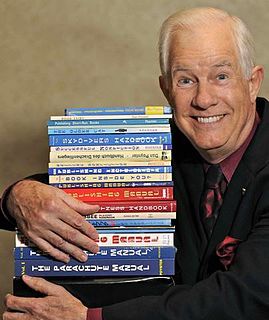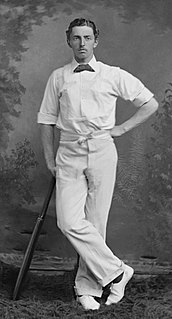A Quote by Dan Poynter
If only it were as easy to do the work of others
as it is to criticize their performance.
Related Quotes
One of the basic things we should avoid is to criticize others. Better to criticize yourself. Criticize yourself, criticize your brothers and sisters, criticize your country, criticize all the habits you have and laugh at yourself, is the best way. If you know how to laugh at yourself then you will not object or will not stand in the way of any creativity of another person.
I was working with actors who were very easy to work with, but I can just imagine how, with all the other decision-making problems that come up along the way, in addition to that, the whole point of what your doing is following performance and character development. You're building your story with those building blocks, and it is not easy. I've only come out with more respect for directors, from this.
If all females were not only well educated themselves but were prepared to communicate in an easy manner their stores of knowledge to others; if they not only knew how to regulate their own minds, tempers, and habits but how to effect improvements in those around them, the face of society would be speedily changed.
Send us people with initiative, who can carry themselves and others too; such as need to be carried hamper the work and weaken those who should be spending their strength on the heathen. Weaklings should be nursed at home! If any have jealousy, prides, or talebearing traits lurking about them, do not send them, nor any who are prone to criticize. Send only Pauls and Timothys; men who are full of zeal, holiness and power. All others are hindrances. If you send us ten such men the work will be done.
Reading is performance. The reader--the child under the blanket with a flashlight, the woman at the kitchen table, the man at the library desk--performs the work. The performance is silent. The readers hear the sounds of the words and the beat of the sentences only in their inner ear. Silent drummers on noiseless drums. An amazing performance in an amazing theater.
And luckily, for whatever reason, I've found people who are interested in living with and owning and existing around the DNA of my mind, which is my visual work. I've found collectors who are willing to put money down to live with my work. So I can't criticize the whole mechanism. But I can criticize it as an artist, in spite of the fact that I benefit from it. And there are problems with it.
Six traits of effective leaders: 1. Make others feel important 2. Promote a vision 3. Follow the golden rule 4. Admit mistakes 5. Criticize others only in private 6. Stay close to the action Example has more followers than reason. We unconsciously imitate what pleases us, and approximate to the characters we most admire.



































